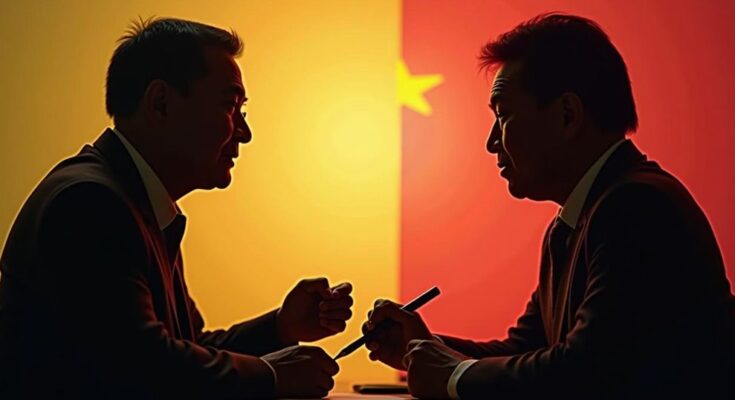Indonesia and Papua New Guinea have signed a Memorandum of Understanding aimed at enhancing parliamentary cooperation and political dialogue. The agreement addresses matters related to economic collaboration and border management. The meeting emphasized the importance of maintaining strong bilateral ties in the Pacific region, particularly as Indonesia approaches a new presidential transition.
Indonesia and Papua New Guinea have formalized their parliamentary cooperation through a Memorandum of Understanding (MoU) signed during a recent meeting in Jakarta. The Indonesian Minister for Law and Human Rights, Maharani, articulated that this agreement is integral for enhancing political dialogue between the national assemblies of both nations. The MoU facilitates discussions on crucial matters, including collaborative efforts in parliamentary initiatives, economic partnerships, and border management. Maharani emphasized the necessity of fostering a conducive bilateral environment amidst evolving regional dynamics. She further acknowledged the longstanding harmonious relations with Papua New Guinea, recognizing it as a significant ally in the Pacific region. “This meeting reflects Indonesia’s balanced diplomatic approach, which pays equal attention to our neighbors in the east rather than being fixated on competition among great powers,” Maharani remarked. Despite the nearing conclusion of the current legislative period, Maharani expressed enthusiasm for receiving the Papua New Guinean parliament’s speaker for the MoU’s signing. She asserted the commitment of both parliaments to continue nurturing their established ties, even with the impending transition within Indonesia’s legislature. Pomat, the Papua New Guinean parliament speaker, affirmed that his country will support Indonesia’s incoming leadership under President-elect Prabowo Subianto, who will officially take office on October 20, 2024. The meeting was attended by key officials, including DPR Deputy Speaker for Political and Security Affairs Lodewijk F. Paulus and Deputy Speaker of DPR’s Commission Utut Adianto, underscoring the importance of this bilateral engagement.
The Memorandum of Understanding signed between Indonesia and Papua New Guinea represents a significant step in strengthening bilateral relations between the two nations, especially in the context of parliamentary cooperation. Given their geographical proximity and shared interests, such agreements are pivotal for addressing mutual challenges and enhancing political dialogue. The focus on cooperative frameworks aims to solidify partnerships that benefit both nations economically and politically. Papua New Guinea’s status as a Melanesian ally places it as a crucial partner for Indonesia within the Pacific, where diplomatic relations are increasingly relevant amidst a complex geopolitical landscape.
The signing of the MoU marks a pivotal moment in Indonesia-Papua New Guinea relations, showcasing a commitment to enhance cooperation across various sectors. The focus on political dialogue, economic collaboration, and border management highlights the importance both nations place on mutual development. As Indonesia prepares for a new presidential administration, the continuity of strong ties with Papua New Guinea remains a priority, ensuring that both countries navigate regional subtleties with cooperation as a guiding principle.
Original Source: en.antaranews.com




